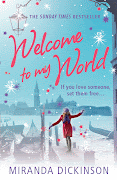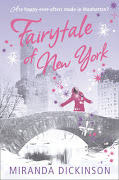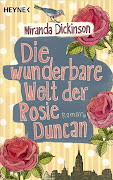
On Coffee and Roses I like to bring you news of exciting authors who are either waiting to be published or published and worth checking out.
This week, I'm really excited to welcome the thoroughly lovely
JULIE COHEN into the Coffee and Roses Writer Spotlight.

When did you first decide that you wanted to write?
I’ve always wanted to write. I made little “books” out of paper when I was a kid and made up stories about my marble collection. I was forever playing Dungeons and Dragons, which is basically collective storytelling. I remember very clearly when I wrote my first actual novel. I was about eleven and I’d just read the Earthsea trilogy by Ursula LeGuin, and I sat right down and wrote a 125-page handwritten story about a female wizard who gets kidnapped by a really sexy evil king. I made maps and illustrations and everything. (She didn’t end up with the evil king, though; she chose a humble but pure-hearted sailor instead. I think I missed a trick there.)
My teachers at school were encouraging, and I had poems and short stories published in small press magazines. I recently found a photocopy of the first money I ever earned writing – it was a cheque for six US dollars paid for a poem. But I had no idea of how to become a novelist, and nobody could really advise it as a career path, so I plumped for academia instead.
I probably should have noticed something when I kept on putting off working on what was supposed to be my PhD thesis so I could write a Mills & Boon novel. But it wasn’t until a couple years later when I was teaching secondary school English that I suddenly thought, “This is silly. I’ve been playing around enough with writing. I should try to write that book and get it published.”
So that’s what I did. Not that first book, obviously, which was awful and got rejected pretty much by return of post, but a few books later.
What interests you as a writer?
I find myself drawn again and again to similar themes in my stories: of deception and truth, identity and outsiderdom, acceptance and forgiveness. I like reading books about these themes, too. I love, love, love writing those parts in a novel where the heroine realises that she’s been wrong and that she really can open her heart. Lately, I’ve enjoyed writing in first person, because I enjoy the limitations and constrictions that it imposes on the writer. I’m a total sucker for dramatic irony, when the reader realises things that the viewpoint character doesn’t, and it’s so delicious writing that in first person. Yes, I know I’m geeky like that.
One of the greatest things about being a writer is that you can build your books around topics that interest you. So with Getting Away With It, for example, I’ve had the perfect excuse to research ice cream and twinship, stone circles and cereology, fast cars and memory loss. I spent several days in Avebury and other neolithic sites in Wiltshire, as research for the setting. Lovely.
Do you have a typical writing day? If not, when is the best time to write for you?
I’m not a morning person as a rule, but I have a young son and I have to write while he’s in nursery, which is in the morning. So I slave away at the keyboard from 8 am till about one o’clock most days. I try to write 1000 to 2000 words a day while I’m in first draft mode – though I might end up cutting all of that later, or I might end up writing more if I’m really cruising, like at the end of a book.
What made you decide to write Getting Away With It?

Twins. I just love identical twins. I think the whole concept is fascinating. And because I’m obsessed with stories about identity and deception, I was hooked by the idea of a woman taking over her identical twin sister’s life when her sister disappears. I think I was having an ice cream on the Isle of Wight when it first struck me. I knew it was going to be a bigger book than anything I’d written before, so I was thrilled to get the opportunity to write it for Headline Review.
What are the best things about being a writer?
The two best things are probably getting so involved in the world of your characters that you forget everything else. That’s just magical. And, I can’t lie – the other best thing is when someone reads your book and says they like it. I’m a sucker for positive reinforcement.
And the worst?
Being attacked by crows of doubt – you know, those moments when you’re sure the book doesn’t work, that you can’t write, that you suck, that you’re going to crash and burn. It happens at some point in every single book for me, and I never really believe it will all work itself out. Even though it always has, so far.
Tell me about what you're working on now.
I just gave in the manuscript for my second book with Headline Review. It’s a contemporary women’s fiction novel about a woman who gets a job as costumed historical interpreter in a restored stately home where they’re re-enacting the summer of 1814. There are two story threads – the contemporary one in the heroine’s real life, which is a bit of a mess, and the pretend-1814 one, which is a Heyer-esque Regency romp. Eventually the two threads start coming together in some unexpected ways.
You're a much-loved speaker and workshop leader at writing events across the country. What would be your top three tips for aspiring writers?
1) Read.
Good writers are voracious readers. How else are you going to learn about characterisation, story structure, the mechanics of writing? Or what you want to spend your time writing? Reading is probably the best training for writing, except of course, writing.
2) Write Crap.
I have a post-it note on my computer saying this. What it means is, just get the first draft written. Don’t spend a lot of time fretting about how bad it is. Just do the best you can with what you’ve got. Once you’ve finished your first draft, then you can think about how to change your work to make it suitable for a reader. Of course, maybe you’re a genius and your first draft is solid gold. But all of my first drafts are crap, and most writers that I know say the same thing about theirs. For some reason, you have to give yourself permission to write badly before you can get down to work on making your writing good.
3) Get a Support Network.
When I decided I wanted to write for publication, one of the first things I did was to join writing groups. I joined my local writing group, Reading Writers, and I also joined the Romantic Novelists’ Association in the UK, and Romance Writers of America. All of these groups helped me materially on my way to publication (for example, I made the final in a RWA contest which got me noticed by editors, and I met my agent at an RNA meeting). But more importantly, they’ve given me a support network who I can lean on when the writing’s not going well, and who I can celebrate with when it is. You don’t have to be a joiner to get a support network – one writing friend, online or in real life, is enough to validate your perception of yourself as a writer. This job is hard enough without trying to do it in a vacuum.
Do you have a dream project you'd love to write?
You know, I’m lucky enough to feel like every project I’m working on is my dream project at the time.
Big thanks to Julie for her brilliant questions. I can’t wait to read Getting Away With It - it’s going to be my Christmas treat this year!
 Julie's gorgeous book, Getting Away With It, is out now in hardback and will be released in paperback next year. To find out more about Julie, visit her website.
Julie's gorgeous book, Getting Away With It, is out now in hardback and will be released in paperback next year. To find out more about Julie, visit her website.If you would like to feature in a future Coffee and Roses Writer Spotlight, drop me a line at coffeeandroses@gmail.com and I'll see what I can do!












5 comments:
Great interview, Miranda! I met Julie at the York Writers' Festival and thought she was truly lovely. I absolutely loved her workshop which was bursting with energy - and I had the bones of a new story at the end of it :-)
Great interview, Miranda and Julie, and thanks for such practical advice from Julie to aspiring writers. Her blog is full of equally good advice, as well. I think I might be putting up a similar post-it note on my computer, especially in this non-editing-as-we-go month of NaNoWriMo!
Hey, that's great Jaxbee, then the workshop did exactly what it was meant to! I'm really pleased.
Thanks for the interview, Miranda, it was fun to do.
Fantastic interview, ladies! I've been lucky enough to be in two of Julie's workshops and Jaxbee's right -- they are busting with energy.
And the RNA is such a great support for writers! I've met some wonderful people.
Fantastic interview!! Miranda you are bringing up some amazing authors (including yourself) as I've just come across your blog!!! So many books to add to the TBR list... I love it!!!
I can't wait to check out her website! I'm adoring all these covers!
Post a Comment